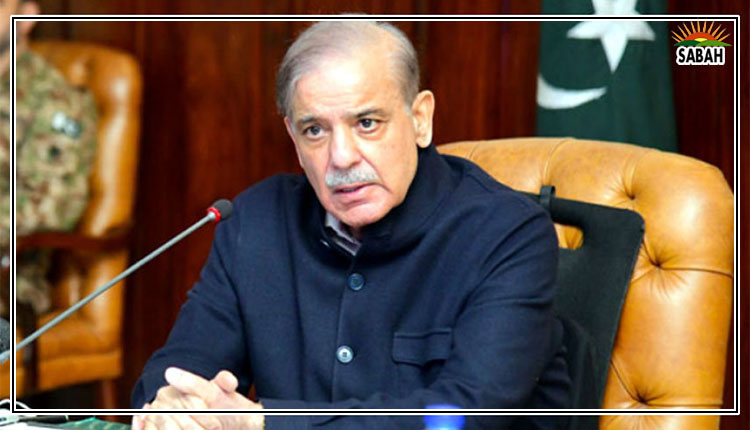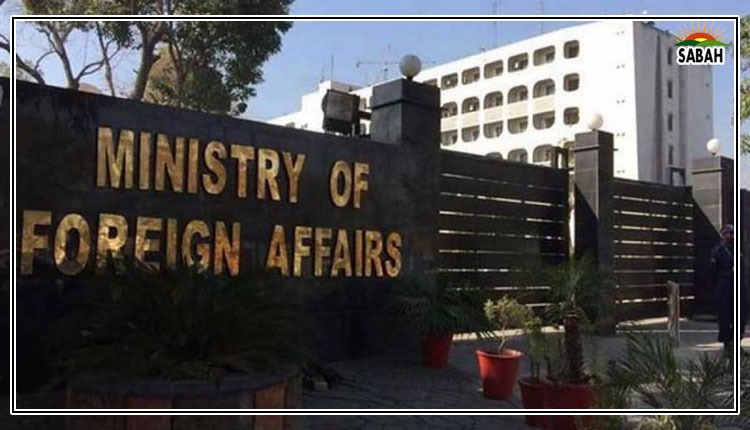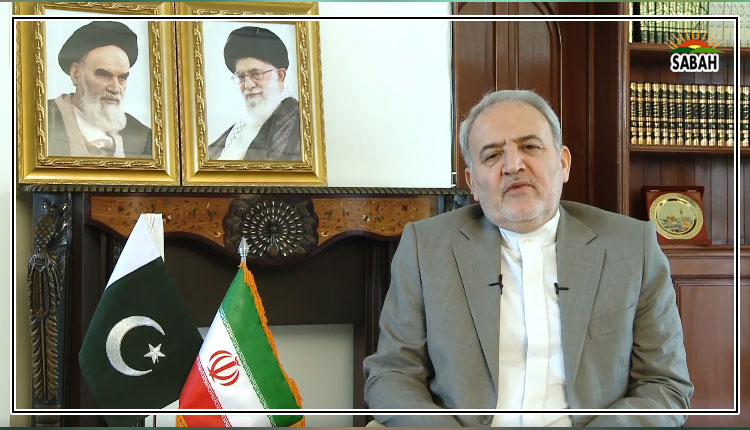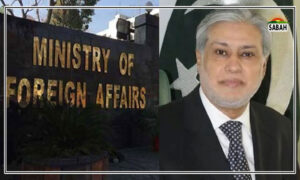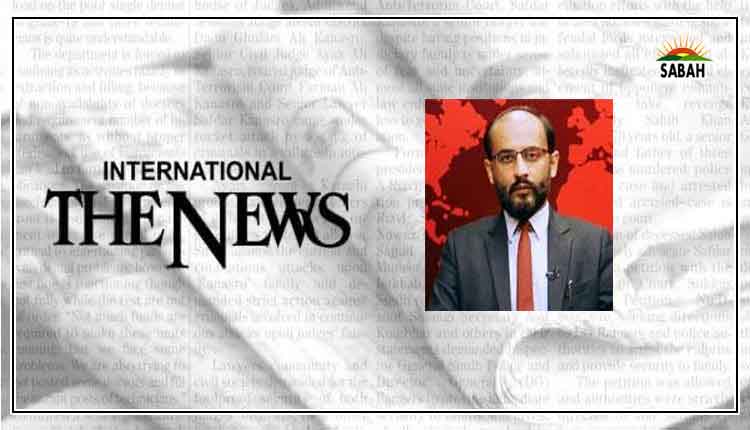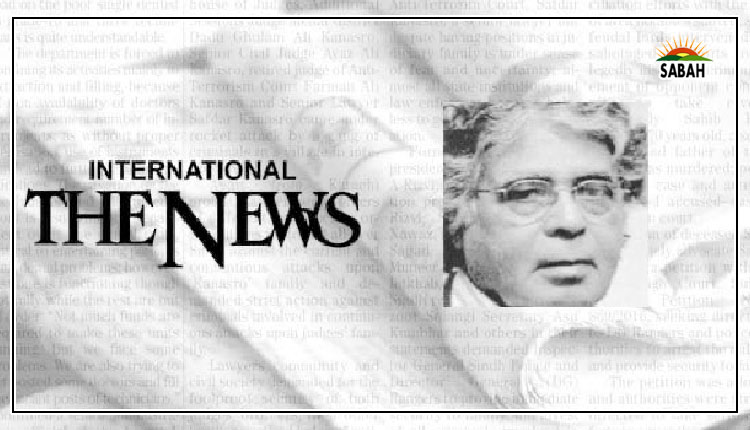An opportunity being lost … Ghazi Salahuddin
Being a man of action in the lazy setting of Pakistan’s politics, Prime Minister Shehbaz Sharif would know that every challenge is an opportunity. The bigger the challenge, the bigger the opportunity. And the task he has at hand now is truly monumental. So, what does his response look like?
Before I come to that, let me dwell a bit on this theory of challenge and response that was defined by English historian Arnold Toynbee. This hypothesis by a philosopher of history explains why and how civilizations throughout history have grown and vanished.
Toynbee concluded that, in the words of a text I have, civilizations “prospered by meeting challenges head-on with the help of innovative minorities led by exceptional leaders”. We are told that “civilizations began to fail when their leaders ceased to respond creatively to challenges”.
There is little doubt that Pakistan is presently in bad shape. There seems no way out of our present difficulties. I am tempted to quote Thomas Paine: “These are times that try men’s souls; the summer soldier and the sunshine patriot will, in this crisis, shrink from the service of his country; but he that stands it now deserves the love and thanks of man and woman”.
If these are sublime thoughts, let me climb down to the level of the ridiculous. On Sunday last, on a holiday when all government offices are closed, the Cabinet Division issued a notification to announce the appointment of Foreign Minister Ishaq Dar as the deputy prime minister “with immediate effect and until further orders”. The appointment, of course, was made by Prime Minister Shehbaz Sharif, who has to deal with many great challenges.
During this week, Ishaq Dar’s elevation has been widely discussed in the media. In countless conversations across the country, in drawing rooms and on coffee tables and street corners, people may have wondered about this move. It seemed something not so much for the serious political commentators as for the comedy shows and the cartoons.
Since this subject is already dated for this column, I’ll let it go. But that initial thought about the grim challenge that the prime minister has to respond to is important for the nation. Is it at all doable? Is the goal within the reach of Shehbaz Sharif or any other leader in this country? Is there a prescription somewhere to guide the leader of a country like Pakistan?
Moving ahead is something. Our story is that of lagging behind. In recent decades, our ranking in South Asia, across almost all social indicators, has gone down. These are societies very much like ours. This means that we have lessons to learn. On the face of it, it should be easy for us to follow in the footsteps of some specific countries.
Ah, but every unhappy country is unhappy in its own ways. Pakistan has its unique problems. What is not unique is the leadership it has – and I am not alluding here to the man who is in office at present. Those who pretend to know the solutions have never been in short supply. Yet, the country appears to be wandering in the wilderness.
When I suggest that the present arrangement is not delivering, the point is that no radical moves have been made to create momentum for change. No revolutionary steps are in evidence to turn the tide of events. By and large, the impression is that this is business as usual. Sadly, this will not work. It does not work in revolutionary times.
Are these revolutionary times? An answer to this question would require a solemn investigation by social scientists and thinkers. We are aware of the attention that the present rulers are devoting to economic revival. This is necessary but economists and financial experts cannot set a country’s ideological, intellectual and moral sense of direction.
Incidentally, I was in Lahore to participate in the 5th Asma Jahangir Conference when the news of Ishaq Dar’s additional appointment was made public, allowing us a little diversion in the midst of some very thoughtful and engaging discussions. The entire weekend pulsated with excitement with the presence of so many renowned national and international observers of current affairs and defenders of human rights.
Ever since her untimely death in February 2018, this country has desperately been in need of the wisdom and courage that Asma Jahangir possessed. She was an exceptional human being and her struggle for human rights is an inspiring chapter in our history.
One measure of Asma Jahangir’s stature in the global narrative of democracy and human rights was the quality of participation and discourse in this conference on the theme: ‘People’s Mandate: Safeguarding Civil Rights in South Asia’. In terms of how it was conceived and designed, the conference was a very insightful compendium of analyses and elucidations of an entire range of national issues.
It is not possible for me to sum up the proceedings of the conference. The idea is to see it against the backdrop of what is happening in Pakistan and what options do our policymakers and rulers have to set things right. In other words, here was something for those in power to seriously look into and interact with in an intellectual context.
But the problem is that our rulers and our leaders do not listen to good advice and have no time for critics they know are selfless and sincere in their pursuit of social justice and progress. Consequently, they remain surrounded by summer soldiers and sunshine patriots. We remember how Asma Jahangir was seen as an enemy.
To conclude with what I had begun, the ideas that were projected in the conference that was held in Lahore last weekend deserve to be carefully examined by those who are stuck in the existing quagmire of governance. I wonder if Prime Minister Shehbaz Sharif can find time to go over, quietly, some presentations of the Asma Jahangir Conference.
The writer is a senior journalist. He can be reached at: ghazi_salahuddin@hotmail.com
Courtesy The News



